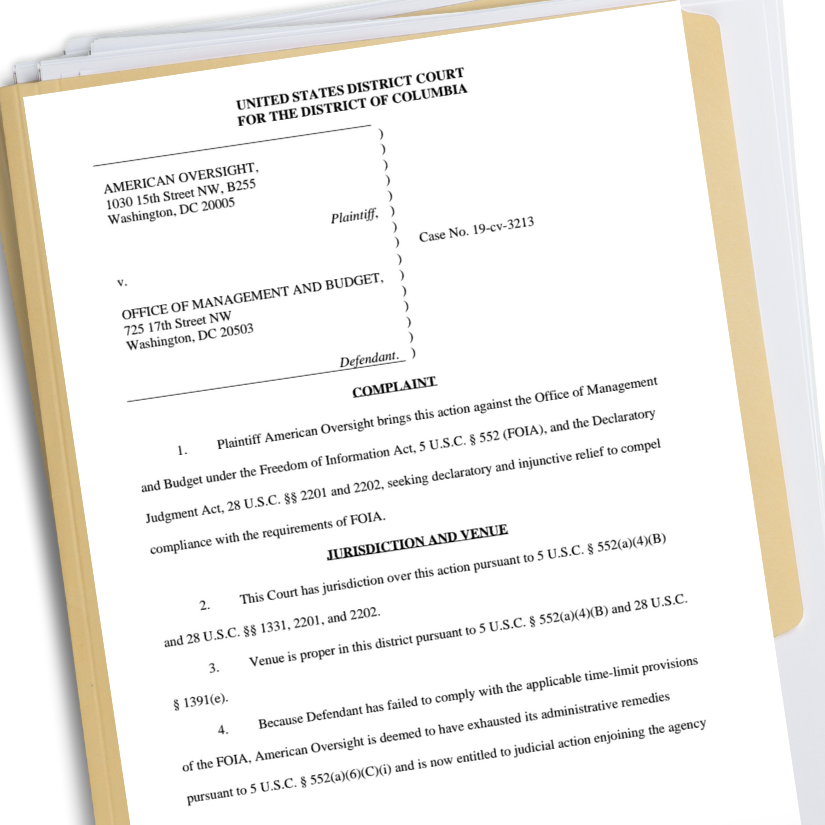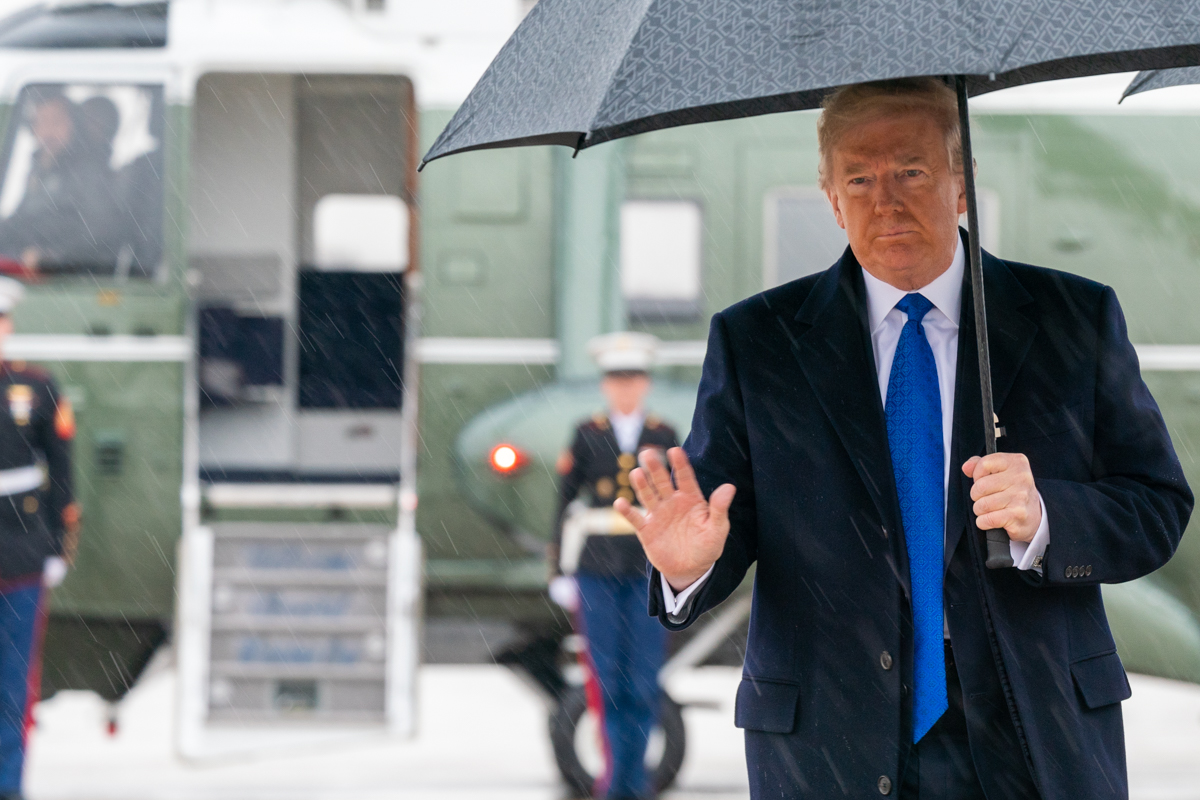
The Facts Are Still Coming Out
And we haven't yet reached the end.

“The facts will come out in the end.” So said Rep. Adam Schiff in remarks ahead of the Senate’s vote late last month against calling witnesses and additional documents in the impeachment trial.
He has been right. Over the course of the trial, more documents relating to the president’s corrupt Ukraine scheme continued to emerge. And now, even after the Senate voted last week to acquit President Donald Trump, more evidence is coming out. And it’s still not “the end.”
On Tuesday, Just Security reported that it had obtained unredacted versions of emails American Oversight obtained through Freedom of Information Act litigation from the Office of Management and Budget, revealing new details about the extent to which OMB misled Congress on the withholding of military aid to Ukraine. Previous document releases, which were also similarly exposed by Just Security in January, shed light on the Defense Department’s concerns last fall over the legality of withholding the congressionally approved aid. Tuesday’s revelations show OMB’s efforts to suppress the Pentagon’s worries — and highlight the involvement of Mark Paoletta, the OMB general counsel who has been the one reviewing redactions on released documents and who himself was a central figure in the administration’s effort to withhold aid.
Those emails, with heavy redactions, had been produced to American Oversight on Jan. 21, and showed a number of communications among OMB officials last summer and early in the fall, when Defense Department official Elaine McCusker was raising concerns about the legality of the aid freeze. One Aug. 12 email from McCusker to Michael Duffey, OMB’s associate director for national security, is fully redacted, but according to Just Security it contained her proposal for language that conveyed the Pentagon’s legal concerns in a new apportionment footnote.
Duffey forwarded McCusker’s email to Paoletta, who that same day offered his own “alternative language” and then sent an email to Duffey, asking to call in five minutes. The content of both those emails obtained by American Oversight was largely redacted. But Just Security reports that Paoletta’s proposed language had removed the Defense Department warning, and that after “Can we call you in 5,” Paoletta wrote, “DoD is being extraordinarily difficult.”
An Aug. 22 email to Paoletta from a Pentagon lawyer was also released to American Oversight, and included the sentence “Elaine McCusker asked that I contact you and underscore her ongoing discussions with Mike Duffy concerning DoD’s obligation of funding for the USAI.” (USAI refers to the Ukraine Security Assistance Initiative.) But the rest of the email was nearly entirely redacted.
According to Just Security, under the redaction is the following:
As I know you appreciate, expediting the interagency review of the USAI will facilitate DOD’s ability to fully and prudently obligate all $250 million appropriated for the initiative by September 30th, the date on which the funds expire. Thanks for your assistance in moving that review along.
As you know, we’re currently operating under an OMB-directed pause in obligations until August 26th. We previously obligated approximately $22 million and the Defense Security Cooperation Agency (DSCA) recently distributed $126 million to the MILDEPs for execution; those funds are pending obligation (and will not be obligated until OMB approves and OSD directs). Obligation deadlines for the remaining $102 million presumably are in the early-to-mid-September timeframe.
Paoletta wrote back on Aug. 26, but the email American Oversight obtained had been fully redacted.
Just Security reports that Paoletta’s response includes the sentence, “OMB appreciates the Department’s concerns that funds for the Ukraine Security Assistance Initiative (“USAI”) should be made available for obligation as soon as possible in order to facilitate DOD’s ability to fully obligate the funds before the funds expire on September 30th.”
In a Dec. 11 letter to the Government Accountability Office, Paoletta wrote that the Defense Department had “at no point during the pause in obligations” told OMB that “the apportionments would prevent DOD from being able to obligate the funds before the end of the fiscal year.” The emails exposed by Just Security make clear that not only were Paoletta’s representations misleading at best, but that his involvement in the review of redactions on documents requested by the public is deeply problematic.
These recent revelations only make clearer that the redactions OMB and Defense have applied to emails produced to American Oversight are inappropriate. In particular, they tend to demonstrate that the agencies have applied redactions to communications in which officials expressed concern about actions that the GAO ultimately found to be unlawful. Courts have long recognized that important privileges cannot apply to records that concern government misconduct, and American Oversight plans to contest these redactions in court in order to ensure the public has a more complete picture of the Ukraine scheme.
American Oversight has multiple FOIA lawsuits against the Trump administration for Ukraine-related records — with records held by Paoletta coming next in our lawsuit against OMB. Other document productions from the Departments of State, Energy and Defense are scheduled over the next month. The facts will come out in the end.